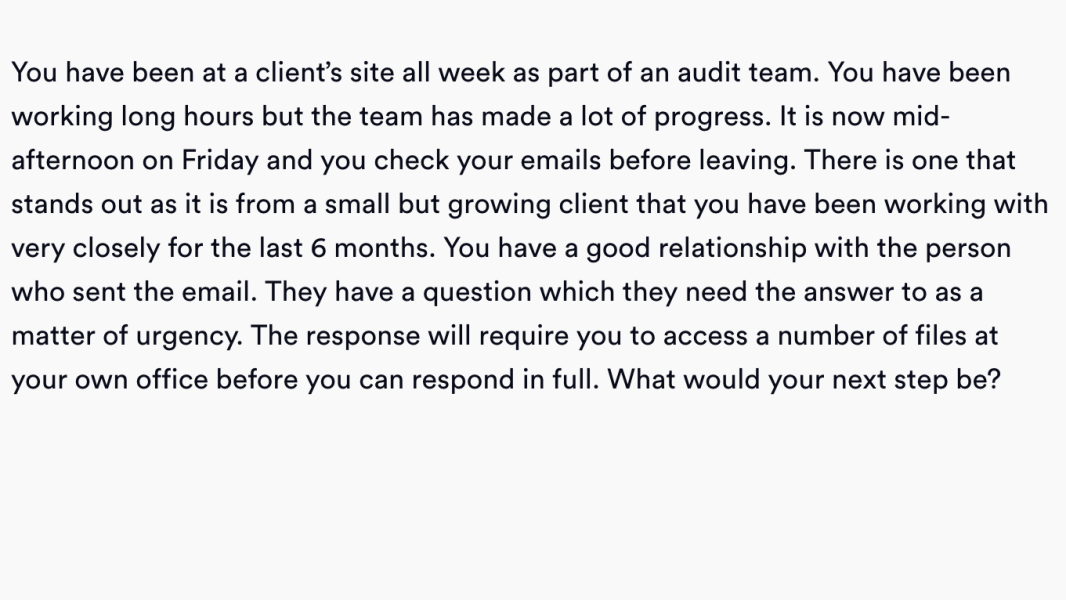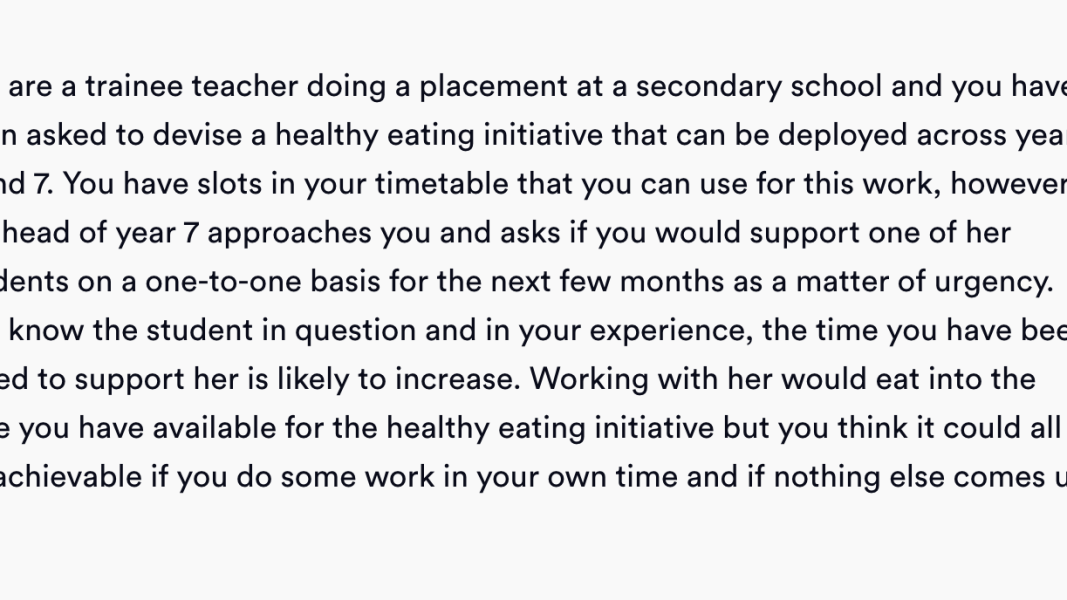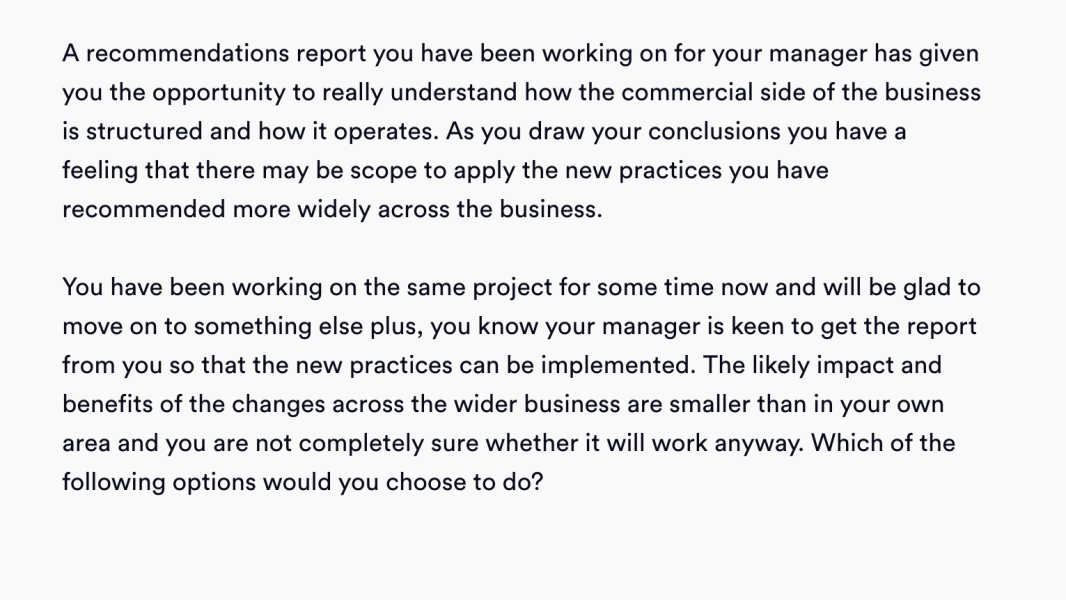What is a situational strengths test?
A situational strengths test assesses you on the identifiable strengths companies require for both the role and the company culture.
The hypothetical scenarios you are given will reflect similar situations that may be faced in the workplace and you need to select the best response out of the set answers.
This psychometric test allows you and the company to see how well you fit for both the position and the company’s environment. It also helps to filter out unsuitable candidates, so it’s important that your answers fit the behaviours the employer is looking for.
Situational strengths tests have much in common with situational judgement tests.
Why do employers use situational strengths tests?
In brief, employers view this test as an efficient and accurate method to select suitable individuals that fit the company.
The test results are presented differently based on each company’s preferred feedback choice – quantitatively, qualitatively or a mix of both. Using the data from the tests, they are able to view which candidates are most likely to perform effectively within the role at the workplace.
The situational strengths test allows them to objectively pick potential employees regardless of their backgrounds, making it easier to recruit fairly.
The situational strengths test is usually compiled of 20 role-specific scenarios with associated questions.
Each question will present you with a skill or strength within the scenario – similar to situations that might actually occur in the role – and you will be judged based on how effectively you can show these particular strengths.
Some questions may require you to rank the responses from most likely to least likely, while others may request that you choose the answer that best represents your response.
The test should last no longer than 20 minutes and can be taken either online or at an assessment centre.
What competencies do situational strengths tests typically assess?
The strengths you’ll be tested on are usually part of the job’s essential requirements and are listed in the job description.
Common competencies might include:
Strong communication skills (written and verbal)
How well you relate to others and can adapt to different conversation styles to effectively communicate with people. The ability to communicate information clearly – both in writing and orally – is a key trait in many roles.
Creative and analytical thinking
Whether you are able to think clearly and critically – with a healthy balance of pragmatism and curiosity – even if the data is quite complex. Being able to swiftly acknowledge and present intellectual solutions while viewing all angles is key to being an effective analytical thinker.
Team player
Collaborative work requires high level of empathy and honesty to successfully complete tasks. Being a team player who is able to work cohesively with diverse teams is something you should demonstrate in your responses.
Organisation
Managing your schedule and delivering high-quality work in a timely fashion is crucial to almost every job. If you are excellent at organisation, you would be expected to oversee a multitude of tasks and be effective in providing regular updates to supervisors or clients.
Market awareness
Having a strong awareness of market trends and using this information to make crucial decisions in terms of impact is important for many roles, particularly in marketing and finance. As an individual with solid market awareness, you should be able to demonstrate a good eye for specific industry gaps to seize opportunities, and good insight of competitors to differentiate from them in terms of brand identity.
How best to prepare for a situational strengths test
Practice and research are the two most important ways to prepare for a situational strengths test. After these, make sure that you:
Review The Role. This test is usually geared to a specific role, so it’s important to imagine yourself in that role when answering the question.
Be Honest. Think carefully and be authentic on how you would actually react in each scenario. Remember the scenarios are usually based on situations that may arise in reality, so trust your gut instinct and answer the best you can, rather than trying to guess what’s expected.
Evaluate. Some practice situational strengths tests might offer detailed feedback on your responses; if so, use this as a way to evaluate what went well and where you can improve.
Patterns. Try to identify certain patterns in your responses to each question. This may reveal typical patterns about your behaviour, such as preferring to analyse issues more autonomously or being more likely to analyse with others.
For further information, see our tips for situational judgement tests and how to prepare for situational judgement tests.














